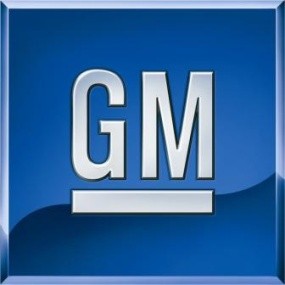 The National Governors Association is teaming up with General Motors to promote the expansion of E85 distribution around the country. While no one seriously expects the corn-based ethanol that we have today to be anything more than a very small piece of the fuel puzzle, GM is firmly committed to next-generation biofuels. Since the start of this year, GM has made equity investments in two different companies (Coskata and Maskoma) developing processes to produce low-cost cellulosic ethanol.
The National Governors Association is teaming up with General Motors to promote the expansion of E85 distribution around the country. While no one seriously expects the corn-based ethanol that we have today to be anything more than a very small piece of the fuel puzzle, GM is firmly committed to next-generation biofuels. Since the start of this year, GM has made equity investments in two different companies (Coskata and Maskoma) developing processes to produce low-cost cellulosic ethanol.
Minnesota Governor Tim Pawlenty announced the agreement at the NGA meeting in Philadelphia. Pawlenty has been a major proponent of biofuels in his own state, having recently proposed making all gasoline sold be a 20-percent ethanol blend. Under the agreement, GM will work with state governments to determine where best to locate E85 pumps to make them most accessible to drivers of flex-fuel vehicles. Currently there are just under 1,700 E85 pumps available nationwide out of the total of 170,000 filling stations. The intent of this partnership is to ensure that over the next few years as cellulosic ethanol gets commercialized, there will be easily-accessible locations where drivers of the millions of flex-fuel vehicles on the road can get biofuel. The GM press release is included after the jump.
[Source: General Motors]
GM, National Governors Association Team Up On E85
Goal is Building Infrastructure for Next-Generation Biofuels
PHILADELPHIA – The National Governors Association and General Motors Corp. will work together to expand the nationwide infrastructure and distribution network for E85 ethanol aimed at being ready when next-generation ethanol made from a variety of non-grain sources is available.
The announcement was made Sunday by Minnesota Gov. Tim Pawlenty during the opening plenary session of the NGA Centennial Meeting in Philadelphia. The partnership was formed under the Securing a Clean Energy Future Initiative Pawlenty championed as chair of the NGA.
"As we face this current energy crisis, we must do more to Americanize our energy sources and reduce our dependence on foreign oil," Gov. Pawlenty said. "An important part of that effort is promoting the use of homegrown alternatives. This collaboration with GM will help increase the availability of E85 around the country, providing more consumer choice and moving us toward a more secure energy future."
Under the plan, GM will use expertise gained in helping bring 300 E85 pumps on line in 15 states over the last three years, to assist more states in strategically locating pumps to allow owners of flex-fuel vehicles to choose between ordinary gasoline and E85, which consists of 85 percent ethanol and 15 percent gasoline.
"The infrastructure development for E85 needs to expand now if the nation is to be ready for the significant growth in ethanol coming from new sources," said Beth Lowery, GM vice president of Environment, Energy and Safety Policy. "We need a range of alternatives to offset growing energy demand in this country and globally."
In addition to helping connect fuel retailers with available grants for pump installations and conversions, GM assists in determining the best locations for pumps based on flex-fuel vehicle registrations. It will expand these efforts to as many as eight states under the NGA partnership.
GM is steadily increasing the number of cars and trucks offered with flex-fuel capability at no extra cost to consumers. For 2009, GM will have 18 FlexFuel models including the four-cylinder Chevrolet HHR. GM has committed to making 50 percent of production flex-fuel capable by 2012, providing the infrastructure is progressing.
There are currently fewer than 1,700 E85 pumps in the nation out of about 170,000 gasoline stations. Many flex-fuel vehicle owners have never used E85 because they have no easy access to it.
The third part of GM's E85 commitment is strategic alliances and equity investments in two next-generation ethanol start-ups – Coskata Inc. and Mascoma Corp. The two companies cover the spectrum of biothermal and biochemical conversion of non-grain based sources into ethanol.
"GM continues to believe ethanol is the most significant near-term energy alternative to offset the increasing demand for oil," Lowery said. "To make ethanol a viable alternative to gasoline requires sustainable production methods, a variety of vehicle offerings and a robust infrastructure to make the fuel available to consumers."
General Motors Corp. (NYSE: GM), the world's largest automaker, has been the annual global industry sales leader for 77 years. Founded in 1908, GM today employs about 266,000 people around the world. With global headquarters in Detroit, GM manufactures its cars and trucks in 35 countries. In 2007, nearly 9.37 million GM cars and trucks were sold globally under the following brands: Buick, Cadillac, Chevrolet, GMC, GM Daewoo, Holden, HUMMER, Opel, Pontiac, Saab, Saturn, Vauxhall and Wuling. GM's OnStar subsidiary is the industry leader in vehicle safety, security and information services. More information on GM can be found at www.gm.com.


Sign in to post
Please sign in to leave a comment.
Continue